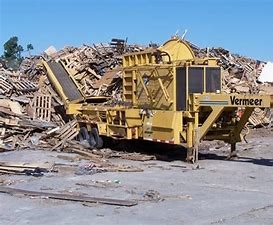Walden has been providing annual permit renewal services to Department of Sanitation of New York (DSNY) Transfer Station Permitted facilities for many years to assist them in complying with applicable permit requirements. All Solid Waste Transfer Stations operating within New York City are required to maintain a DSNY Transfer Station Permit. Permits are issued for Putrescible or Non-Putrescible solid wastes and defined as either Construction & Demolition debris (C&D), Putrescible (PSW) or fill material transfer stations.
Non-putrescible waste consists of waste that does not contain organic matter having the tendency to decompose and create odors. Most construction and demolition wastes are considered non-putrescible. Non-Putrescible waste includes but is not limited to dirt, earth, plaster, concrete, rock, rubble, slag, ashes, waste timber, lumber, plexiglass, fiberglass, ceramic tiles, asphalt, sheetrock, tar paper, tree stumps, wood, window frames, metal, steel, glass, plastic pipes, plastic tubes, rubber hoses, rubber tubes, electric wires, electric cables, paper, cardboard.
All Permitted Transfer Stations must comply with the required performance standards of the Zoning Resolution of the City of New York and Title IV, Part B of the New York City Health Code for the specific permit type. The regulations for these codes include performance standard testing to verify compliance with current regulations. Walden applies its extensive knowledge, experience and licensing to evaluate client facilities and operations in order to certify compliance with standards that include zoning Performance Standards and New York City Health Code requirements for:
Noise;
Vibration;
Smoke, Dust and other Particulate Matter;
Odorous Matter;
Toxic or Noxious Matter;
Radiation Hazards;
Fire and Explosive Hazards;
Humidity, Heat or Glare; –Buildings; Water Supply Safety Standards; and Rodents, Insects and other Pests.
With extensive knowledge of transfer station operations and DSNY permitting rules, Walden also develops detailed strategies and operating procedures to help clients with facilities that do not meet the required standards to achieve compliance and avoid penalties.

